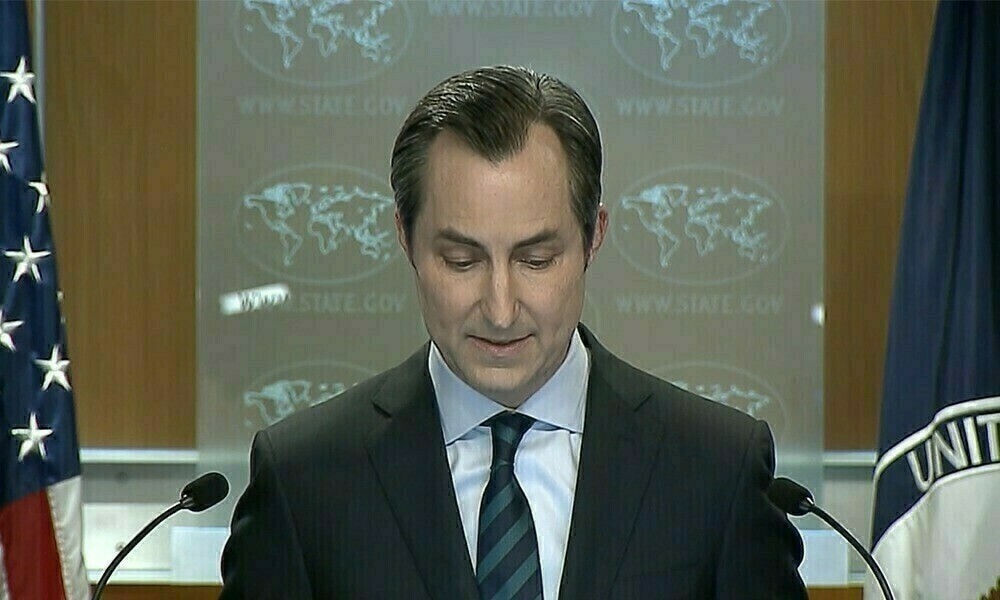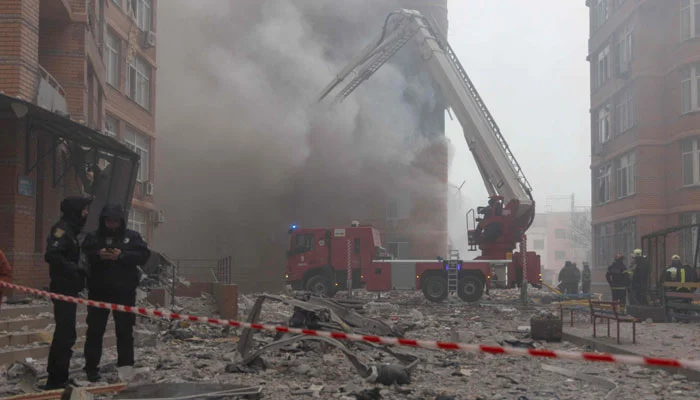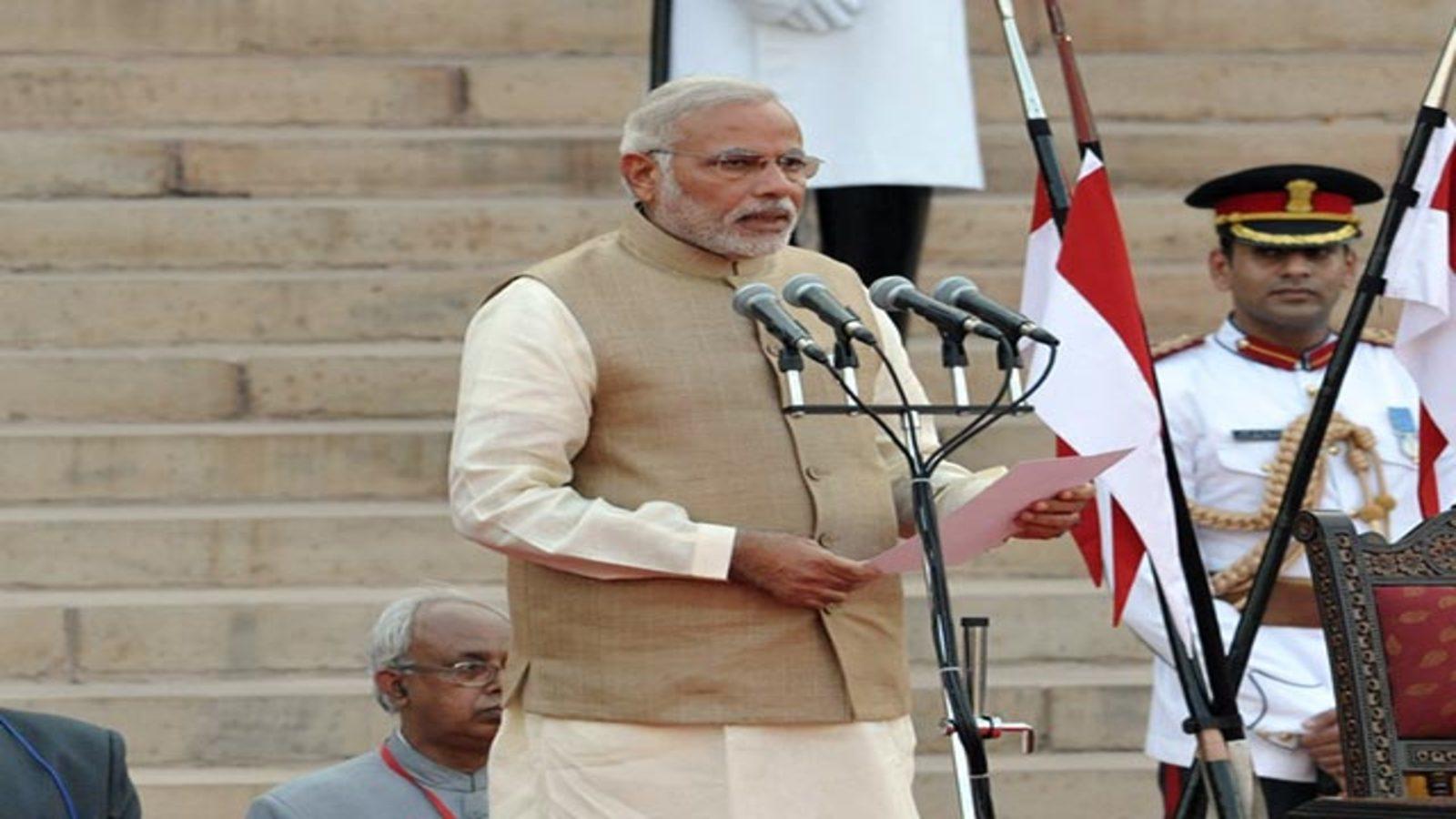PTBP Web Desk
The United States has emphasized the importance of dealing with peaceful protests in Pakistan with respect and restraint, urging both the government and demonstrators to prioritize non-violence and respect for fundamental freedoms.
During a press briefing, US State Department Spokesperson Matthew Miller addressed the recent protests organized by the Pakistan Tehreek-e-Insaf (PTI) in Islamabad, which escalated into violent clashes between protesters and law enforcement authorities. The PTI, led by former Prime Minister Imran Khan, has been demanding the release of their party chairman and founder, sparking widespread demonstrations.
When asked about the Islamabad protests, Matthew Miller stated, “We want to see any protests be peaceful, and we want to see the Government of Pakistan, as is true with any government around the world, to engage with peaceful protests respectfully and deal with them peacefully.” His remarks underscored Washington’s stance on the importance of upholding human rights and the rule of law during civic unrest.
The PTI’s march towards Islamabad last week culminated in thousands of party supporters gathering in the heart of the capital city. The demonstrations were spearheaded by Imran Khan’s wife, Bushra Bibi, who led a convoy through multiple security barricades to reach the edge of the Red Zone, a highly fortified area in Islamabad.
As tensions heightened, clashes broke out between protesters and security forces, leading to chaotic scenes. Law enforcement agencies, including police and Rangers, launched a late-night operation to disperse demonstrators from the Blue Area and D-Chowk. The crackdown resulted in the PTI calling off its protest. However, the aftermath of the operation sparked controversy.
The PTI alleged that the crackdown led to hundreds of protesters suffering gunshot wounds and thousands being detained. These claims were strongly denied by government officials, who maintained that their actions were within the bounds of law and order.
In response to the unfolding events, the US reiterated its call for calm on both sides. Spokesperson Miller emphasized, “We call on protesters to demonstrate peacefully and refrain from violence. At the same time, we urge Pakistani authorities to respect human rights and fundamental freedoms, ensuring adherence to Pakistan’s laws and constitution while maintaining law and order.”
This appeal aligns with the US’s broader policy of advocating for non-violent conflict resolution and the protection of democratic rights globally.
The PTI protests come at a time of significant political unrest in Pakistan. The detention of Imran Khan has further intensified divisions between the government and the opposition. Khan, who remains a polarizing figure in Pakistani politics, has accused the government of suppressing dissent through force and intimidation. His arrest has become a rallying point for his supporters, who see his detention as politically motivated.
The government, on the other hand, has defended its actions, citing the need to maintain public safety and prevent disruptions to daily life in the capital. The authorities have expressed concerns over the potential for such demonstrations to escalate into broader unrest.
The US’s comments highlight the international community’s watchful eye on Pakistan’s handling of civic protests and political dissent. With Pakistan’s geopolitical significance and its ongoing economic challenges, maintaining stability and respect for democratic norms remains crucial.
Washington’s appeal for restraint serves as a reminder of the global expectations placed on nations to uphold human rights and ensure that democratic processes are respected. It also underscores the delicate balance that governments must strike between maintaining order and safeguarding citizens’ rights to peaceful assembly.
As Pakistan navigates this turbulent period, the need for dialogue and mutual understanding becomes even more pressing. Both the government and opposition must prioritize the nation’s stability and work towards resolving their differences through peaceful means. The international community, including the US, continues to advocate for a path forward that respects human rights, strengthens democratic institutions, and fosters political harmony.
The unfolding situation remains a critical test for Pakistan’s leadership and its commitment to democratic principles. How the government and opposition address these challenges will not only shape the country’s political landscape but also influence its standing on the global stage.




